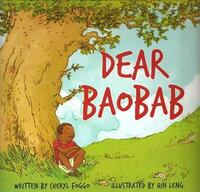Take a photo of a barcode or cover
3.5 stars. I received this book from Netgalley in exchange of an honest review.
Well this was an improvement over my previous book: Anna. Still I had expected more, and I had quite a few questions.
When I read about that tree, and Maiko trying to save it, I had epic battles in my mind. Instead Maiko doesn't do much about it. Sure, he worries, he is sad, but the only thing he truly does is hiding tools or running away. Both not really that special or awesome. Yes, this is a kid, but still, I have read enough kids books to know that kids can do amazing things if they want to.
But I did like the story about Maiko, how he misses the big tree in his birth village, how he wishes he could have such a tree here. Because he feels out of place in this new country, with his aunt and uncle (I also do wonder how he got to live with them, are his parents dead? Is it dangerous where he lived (I know some place in Africa are dangerous)? Something else?). He gets laughed at because of his ears (God only knows why, he has normal ears, but I guess kids can be cruel), and he feels alone (though he will find out he is never lonely, he has his aunt and uncle and his friend).
I also liked that he talked to the tree, that he told the tree stories about his life. It was cute.
The ending? It was adorable and I am happy for both Maiko and the tree.
The art was really lovely, I love the style. Everything (not just humans or backgrounds) was just perfectly done. I do wonder how it looks in paperback, I am sure the pages look pretty and not cropped like it was on my tablet.
All in all, this is a story that I would recommend, though don't expect a great, epic battle to save a tree. Instead find a story about a boy in strange country, who misses his old country and who feels out of place. See him grow and find happiness.
Review first posted at http://twirlingbookprincess.com/
Well this was an improvement over my previous book: Anna. Still I had expected more, and I had quite a few questions.
When I read about that tree, and Maiko trying to save it, I had epic battles in my mind. Instead Maiko doesn't do much about it. Sure, he worries, he is sad, but the only thing he truly does is hiding tools or running away. Both not really that special or awesome. Yes, this is a kid, but still, I have read enough kids books to know that kids can do amazing things if they want to.
But I did like the story about Maiko, how he misses the big tree in his birth village, how he wishes he could have such a tree here. Because he feels out of place in this new country, with his aunt and uncle (I also do wonder how he got to live with them, are his parents dead? Is it dangerous where he lived (I know some place in Africa are dangerous)? Something else?). He gets laughed at because of his ears (God only knows why, he has normal ears, but I guess kids can be cruel), and he feels alone (though he will find out he is never lonely, he has his aunt and uncle and his friend).
I also liked that he talked to the tree, that he told the tree stories about his life. It was cute.
The ending? It was adorable and I am happy for both Maiko and the tree.
The art was really lovely, I love the style. Everything (not just humans or backgrounds) was just perfectly done. I do wonder how it looks in paperback, I am sure the pages look pretty and not cropped like it was on my tablet.
All in all, this is a story that I would recommend, though don't expect a great, epic battle to save a tree. Instead find a story about a boy in strange country, who misses his old country and who feels out of place. See him grow and find happiness.
Review first posted at http://twirlingbookprincess.com/
Oh man, this one made me tear up! How could I not love such a tender and sweet tale about a boy who makes friends with a spruce tree in the front yard of his new home?
This is a beautiful story told with lyrical prose and inviting artwork.
I received an ARC from NetGalley.
I received an ARC from NetGalley.
Note: I received a digital review copy of this book from the publisher through NetGalley.
Dear Baobab is a sweet story about a boy named Maiko who lives with his aunt and uncle but moved from his village in Africa. Maiko has a hard time fitting in and misses his baobab tree back home. Maiko soon finds identity in a tree outside his window that is the same age as he is. The tree is in the foundation of his house but his uncle Peter makes it work until the tree is too big. Eventually, Maiko finds his place in America. This book is a more realistic side of immigration and would be great for teaching about immigration and how sometimes immigrants miss their home and their home cultures.
Assignment #5
Assignment #5
Maiko has had to leave his home somewhere in Africa to come and live with his Aunt and Uncle in what looks to be North America somewhere. (I assume Canada since both the author and illustrator live here)
He has a lot of challenges: grieving for his dead parents, going to a new school and dealing with bullying, loss of his community and especially the baobab tree at its heart. When he discovers the young spruce by his new house is the same age as him, he connects to it and confides his troubles to it.
When the tree must be cut down because of its proximity to the house, Maiko does what he can to save it. When this doesn't work, he tries to run away.
I like that Maiko's aunt and uncle are kind and loving and ready to listen and act on Maiko's concerns once he articulates them.
Qin Leng's digitally coloured illustrations articulate the difference between where Maiko lived in Africa, and where he is now. I love how she captures emotions in the characters' faces and body language.
The problem with this book is that there is a lot of text on the pages. This will dissuade many younger readers. However, because the book portrays the experience of a young immigrant to our country, it is an important title to share with readers of all ages. It would make a good read aloud as part of a family or immigration unit.
He has a lot of challenges: grieving for his dead parents, going to a new school and dealing with bullying, loss of his community and especially the baobab tree at its heart. When he discovers the young spruce by his new house is the same age as him, he connects to it and confides his troubles to it.
When the tree must be cut down because of its proximity to the house, Maiko does what he can to save it. When this doesn't work, he tries to run away.
I like that Maiko's aunt and uncle are kind and loving and ready to listen and act on Maiko's concerns once he articulates them.
Qin Leng's digitally coloured illustrations articulate the difference between where Maiko lived in Africa, and where he is now. I love how she captures emotions in the characters' faces and body language.
The problem with this book is that there is a lot of text on the pages. This will dissuade many younger readers. However, because the book portrays the experience of a young immigrant to our country, it is an important title to share with readers of all ages. It would make a good read aloud as part of a family or immigration unit.
Dear Baobab is a sweet story about a boy named Maiko who lives with his aunt and uncle but moved from his village in Africa. Maiko has a hard time fitting in and misses his baobab tree back home. Maiko soon finds identity in a tree outside his window that is the same age as he is. The tree is in the foundation of his house but his uncle Peter makes it work until the tree is too big. Eventually, Maiko finds his place in America. This book is a more realistic side of immigration and would be great for teaching about immigration and how sometimes immigrants miss their home and their home cultures.
Assignment #5
Assignment #5
Maiko misses his baobab tree, back home in Africa. He misses almost everything about home in Africa, but he really misses his baobab tree. He discovers a new confidant in the little spruce tree in his new home, a tree, he soon learns, that is growing too close to the house and will have to be cut down.
A warm story about learning to fit in.
“Sometimes, he sat on the step and shared secrets that he told to no one else. He talked of his village and the baobabs, and how he missed his friends at the school where he had gone after his father and mother died. He told of how lonely he felt as the wind blew him across the wide ocean in an airplane, and how strange it was, at first, to sleep in the red brick house.”
A warm story about learning to fit in.
“Sometimes, he sat on the step and shared secrets that he told to no one else. He talked of his village and the baobabs, and how he missed his friends at the school where he had gone after his father and mother died. He told of how lonely he felt as the wind blew him across the wide ocean in an airplane, and how strange it was, at first, to sleep in the red brick house.”
I received a free copy of this book from NetGalley in exchange for an honest review.
Dear Baobab was a sad story. It was a good story, make no mistake, but there was a lot of sadness in Maiko's story.
This book seems to be especially needed these days, with more refugee crises happening every day. Maiko has to find his way in this new place and comes up against adversity. There's the class "bully" who teases him about his big ears, there's the little spruce tree which he becomes attached to and which is threatened with being cut down simply because of where it grew.
Maiko doesn't actually do a lot in this book, if by not a lot you understand that it means no quests other than the one that is growing up. It's a difficult time and being in a new place and learning new things doesn't make things easier. By the end of the story, when Maiko turns 8, I think he's finally learning how to settle in with his new friend and the fate of his little spruce tree solidified.
This work was beautifully written. The language wasn't overly simplistic nor was it overly fancy. It found that middle balance where the words seem to engulf you in the story. Nothing magical or fantastical is happening, but you find yourself sinking into the story and feeling for the characters.
The artwork was, too, very good. It was easy to picture these pictures leaping off the page and surrounding the reader as they go through Maiko's story, like something right out of Reading Rainbow.
Dear Baobab was a sad story. It was a good story, make no mistake, but there was a lot of sadness in Maiko's story.
This book seems to be especially needed these days, with more refugee crises happening every day. Maiko has to find his way in this new place and comes up against adversity. There's the class "bully" who teases him about his big ears, there's the little spruce tree which he becomes attached to and which is threatened with being cut down simply because of where it grew.
Maiko doesn't actually do a lot in this book, if by not a lot you understand that it means no quests other than the one that is growing up. It's a difficult time and being in a new place and learning new things doesn't make things easier. By the end of the story, when Maiko turns 8, I think he's finally learning how to settle in with his new friend and the fate of his little spruce tree solidified.
This work was beautifully written. The language wasn't overly simplistic nor was it overly fancy. It found that middle balance where the words seem to engulf you in the story. Nothing magical or fantastical is happening, but you find yourself sinking into the story and feeling for the characters.
The artwork was, too, very good. It was easy to picture these pictures leaping off the page and surrounding the reader as they go through Maiko's story, like something right out of Reading Rainbow.





